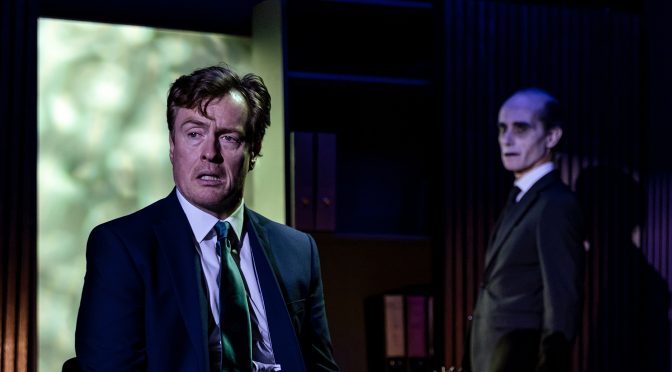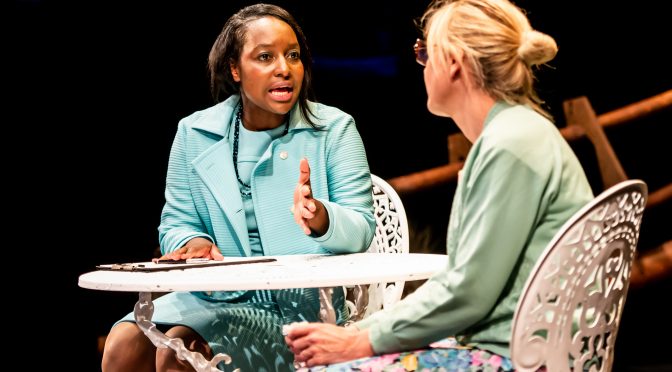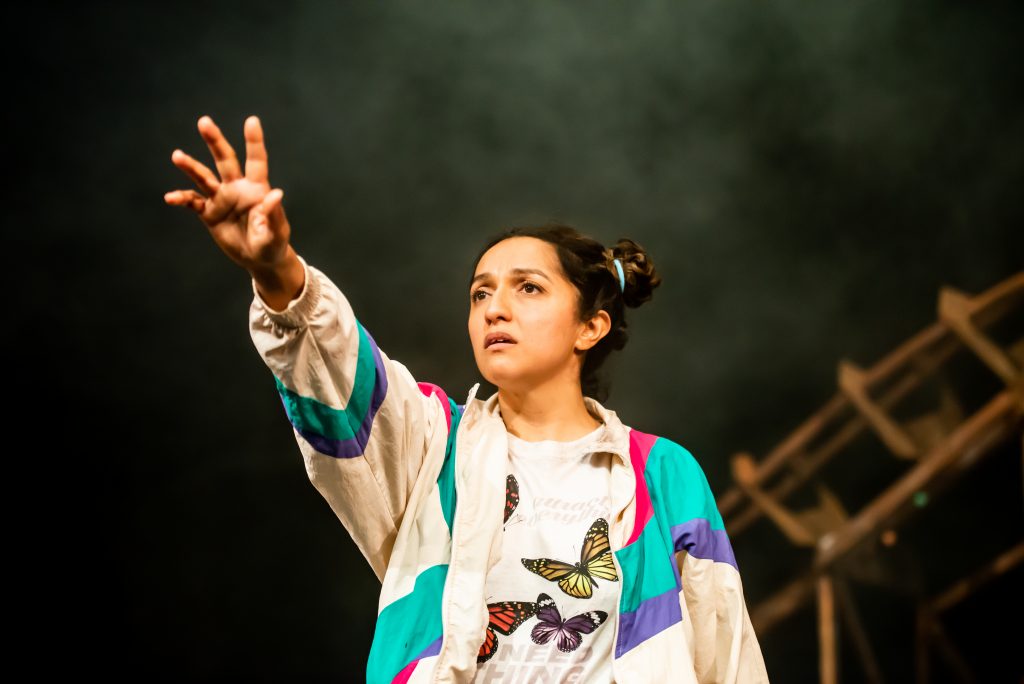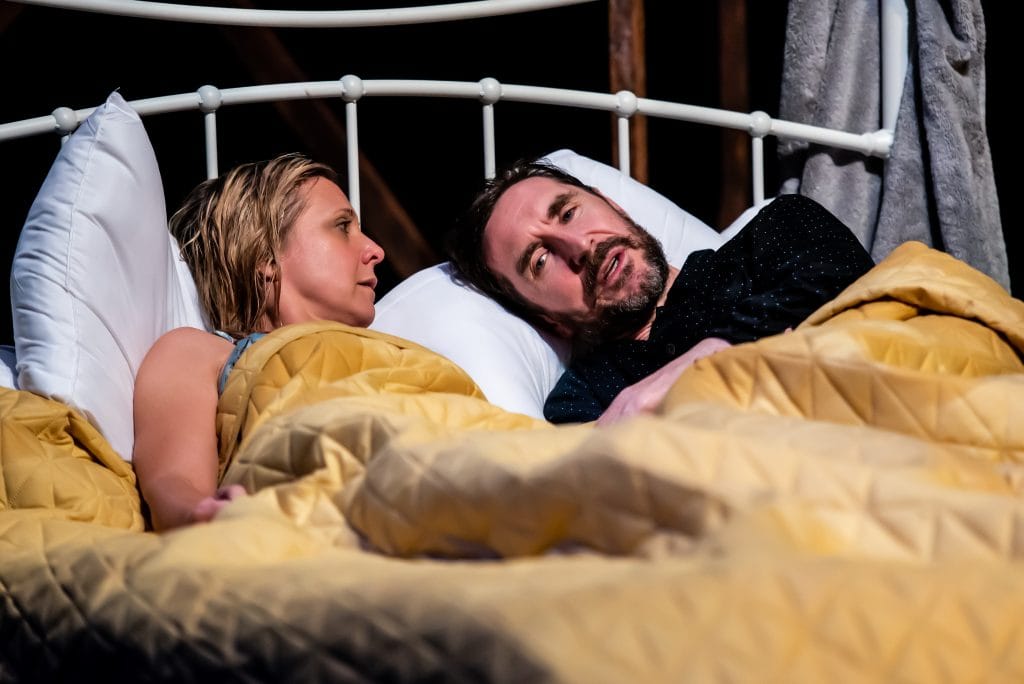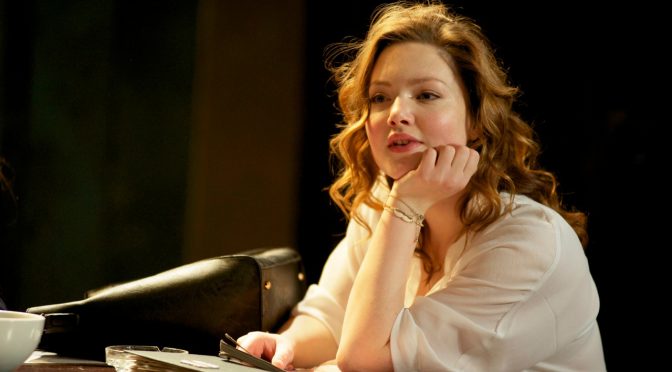Few will rate this new play from Florian Zeller as his best. But a world première from the successful French writer is a feather in the cap of any theatre. Add a superb cast and skilled direction from Jonathan Kent and the show becomes a hot ticket.
Zeller likes to play with an audience, and you either love or loathe his intellectual games. His obsession with truth and family relations, with reality and mental illness, are familiar from hit shows such The Father and The Son. In The Forest, additional surreal touches and elements of a thriller make this story of infidelity original and entertaining.
“Sad and strange”
The Forest has three romantic affairs, well, two, really, with three acts containing repetitions as well as alternate outcomes. All the action is engendered by one man’s perspective. It’s less complex than it sounds (thanks to Kent’s disciplined approach). The idea of a kaleidoscope (cribbed from the programme) is worth bearing in mind, but it’s still often wilfully baffling.
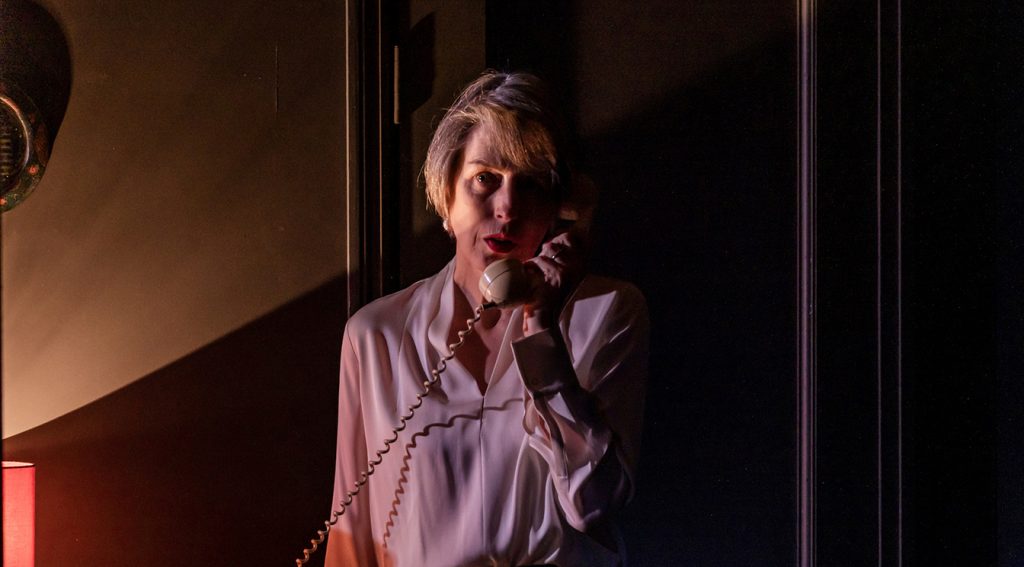
There’s a lot of suffering in the play. A strong performance from Gina McKee as The Wife shows suspicion and concern. Angel Coulby is great as The Girlfriend, a deliberately opaque role. That this woman is perceived as unstable and dangerous comes to the fore. Both characters are shown as they relate to the lead protagonist, and increasingly so, which gives the text dynamism as well as making it uncomfortable.
If we struggle to find an emotional response to the play, this could well be Zeller’s intention. Toby Stephens leads the action alongside Paul McGann as The Man, a character so important that he needs two performers. Interpretations are welcome; but it seems we are watching a mental breakdown, fantasies and all – his mistress kills herself (or was she murdered?).
“Abandoned in a forest”
Coulby’s character is described as “difficult to manage”. And that isn’t going to endear this Man to anyone. The status of this wealthy, much-respected figure is emphasised. Is our sympathy for him a challenge? Stephens manages to convey grief and tension, and it’s hard not to feel for someone so lost. Especially when the imagined therapist/interrogator he talks to is a spooky Man in Black, exquisitely depicted by Finbar Lynch.
Zeller’s audience might feel a little lost at times, too. Instruction for the distinct zones of Anna Fleischle’s design is that “interpenetration” occurs. Thankfully, this is subtly handled by Kent. Hugh Vanstone’s lighting is excellent. The play is a puzzle, stylishly set (quite literally… there’s some lovely furniture here). As delusions escalate (let’s just say we end up with a dead deer on stage), you can’t help feeling it all seems a great deal of effort for a simple moral message.
Until 12 March 2022
Photos by The Other Richard

